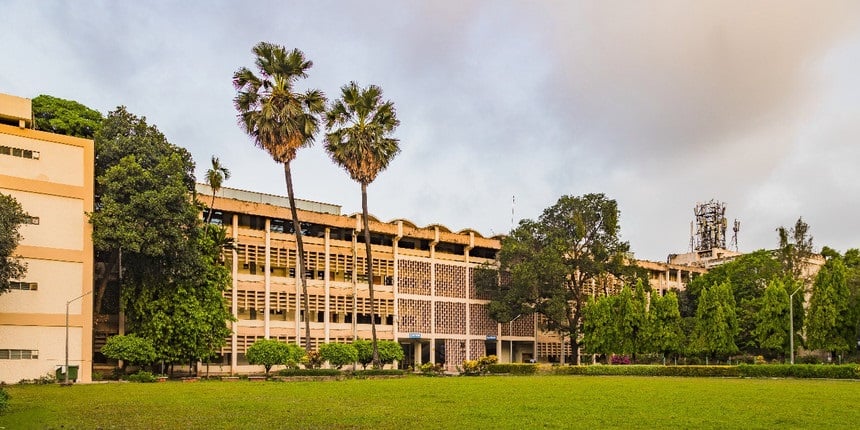IIT Bombay Student Death: 'No specific evidence of direct caste-based discrimination', finds panel
Vagisha Kaushik | March 6, 2023 | 09:20 PM IST | 4 mins read
The committee formed to investigate Darshan Solanki’s suicide pointed to poor academic performance as a strong reason.

NEW DELHI: The interim report of the 12-member committee formed to investigate the suicide case of Indian Institute of Technology (IIT) Bombay chemical engineering student, Darshan Solanki, appears to rule out caste-based discrimination as the cause of his death and instead points to poor academic performance, especially in the second semester. The committee interviewed a total of 79 persons including wing-mates, teachers, friends, family members and others. On February 13, IIT Bombay director constituted a panel to investigate the incident during a condolence meeting.
According to the interim report, of which Careers360 has a copy, Solanki “did not show much interest in studies” and used to sleep a lot; could not make friends due to Joint Entrance Examination (JEE) Main rank differences and language barrier; did not report caste-based discrimination; and wanted to quit BTech at IIT Bombay and join a college in his hometown.
The panel, which includes five members of SC-ST cell, considered academic performance, personal relationships at the institute, caste-based discrimination, substance abuse, and accident or homicide for the investigation.
Also read: ‘Was it expecting casteist slurs?’ Suicide report exposes IIT Bombay’s ‘apathy’: Activists
Poor academic performance
The panel informed that while Solanki received Fail-Repeat grades in the first half of the semester, skipped end-semester exams and some quizzes, and didn’t submit several assignments, his marks were “very poor” in all subjects except one. “It appears from the marks obtained in various courses that his performance deteriorated specifically in the second half of the Autumn semester,” it said.
While interacting with his friends, the committee found that the student preferred to stay in his hostel room mostly and “wanted to relax a bit for a few months”. His friends told the panel that he used to say he was not prepared for the exams and they used to encourage him to study. He also found it difficult to understand the lectures. “DS often expressed that he might quit BTech programme of IIT Bombay and join elsewhere in his hometown,” the report said.
The Teaching Assistants (TAs) informed that he asked for Hindi-help sessions and was absent in most of the tutorials. “It appears that DS was aware of his academic performance not going well”, said the report. He used to avoid discussion on his performance and was not much concerned, it said. His department’s faculty advisor told the committee that he didn’t appear for the meeting planned for poorly performing students.
Darshan Solanki's JEE rank
As per the interim report, Solanki appeared twice for JEE Advanced and achieved 780 rank in SC category in the first attempt in 2021 and 556 rank in second which was in 2022. While he didn’t participate in the Joint Seat Allocation Authority (JoSAA) counselling in 2021, he got a seat at IIT Bombay in the sixth round of counselling through his second rank.
The report suggested that the improved rank and a seat in IIT Bombay made him show academic interest in the first half of the semester which however, deteriorated in the second half. His difficulty in understanding lectures “might have affected him seriously”. Despite encouragement from friends, TAs, he could not pay attention to studies. “Therefore, the despair of deteriorating academic performance appears to be a very strong reason,” the report stated.
Talking about Solanki’s personal relationships at the institute, the panel said that according to interactions, he was perceived to be an introvert who could not bond initially but was comfortable later with everyone.
Caste-based discrimination
Coming to caste-based discrimination, the report said, “none of those interviewed or interacted person, including friends, wing-mates, teachers, TAs, mentors of DS and staff of the hostel-16, mentioned about any kind of discrimination (including caste-based), either reported by DS himself or by any of his friends.”
While his friends told the committee that despite belonging to SC-ST category, they never faced any discrimination, Solanki was sensitive about his caste identity. Only his sister mentioned about caste-based discrimination. The student told his family about the caste-related issues faced by him and other students, however he told them that he would “adjust and manage”. His sister mentioned about incidents where other students of his class laughed at his queries related to computers.
The panel said that though student organizations such as Ambedkar Periyar Phule Study Circle (APPSC) highlighted caste-based discrimination as the reason for his death, none of them ever met him or knew directly if he was facing any problem.
Further, the committee didn’t find any indication of substance abuse or homicide. No one was seen near him at the time of the fall.
The interim report mentioned the activities on the day of the incident and informed that it has requested the police to send details on audio and video calls, forensic analysis, and post mortem report. The panel said in the conclusion, “DS was planning to go out with his wing-mates for shopping and was dressed up in the afternoon of February 12, 2023. Some money was transferred to DS by his father. The committee has no information on what happened in the time span after the telephonic calls with the family and before the tragic incident.”
“In the absence of call details, forensic analysis of the phone/laptop, and post mortem report of DS, the committee at present cannot arrive at a final conclusion on what actually triggered DS to take this extreme unfortunate step,” it said.
Follow us for the latest education news on colleges and universities, admission, courses, exams, research, education policies, study abroad and more..
To get in touch, write to us at news@careers360.com.